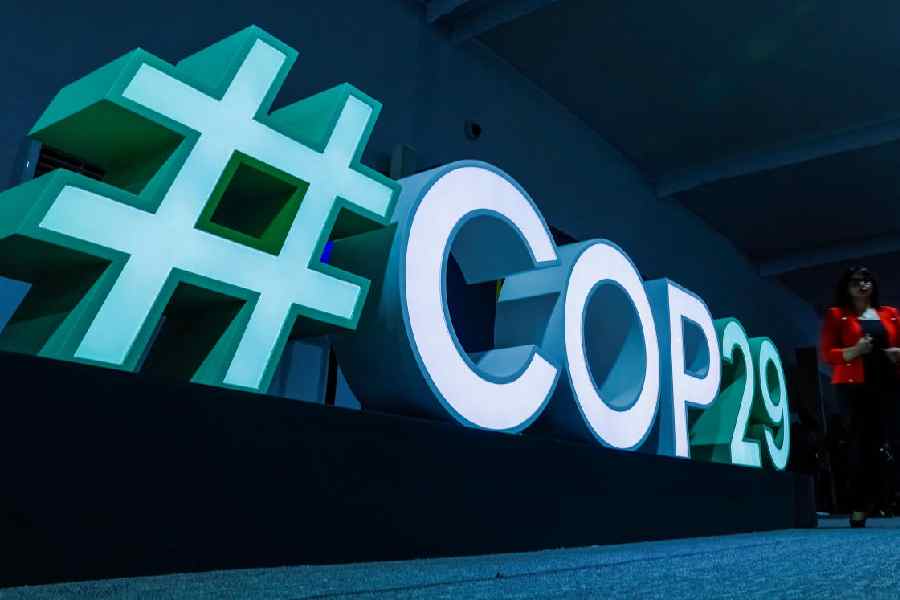As high-level dialogues began on Tuesday at the Baku climate summit, India outlined its key expectations for COP29, emphasising the need for climate finance that is adequate, grant-based, low-interest and long-term.
The Indian delegation stressed the importance of focusing not only on the quantity of financial support but also its quality, highlighting the requirement for at least $1 trillion annually to be allocated to developing and less developed vulnerable nations.
India has not participated in the initial high-level dialogue to be split between Tuesday and Wednesday but is expected to be represented by its minister of state for environment Kirti Vardhan Singh at the final round of high-level dialogue to be held in the second week of the COP.
“The NCQG (new, collective, quantifiable goal of finance) is a key element in the discussions. India …will continue to be vocal about the need for adequate finance for global south,” reads the statement issued by the Union government echoing the concern of several climate experts, and held that “currently much of the focus of the climate discussions are focused on investments in mitigation actions”.
It opined that COP29 should maintain balance and highlight the urgency of addressing adaptation needs, particularly for vulnerable communities in developing countries.
A major part of India, including the Sunderbans in Bengal, northeast states particularly Assam and Tripura, and Bihar, needs adaptation finance to counter the burgeoning impacts of climate change that affects millions frequently.
“COP29 should ensure that the climate finance is adequate, predictable, accessible, grant-based, low interest and long term," reads the statement, which also states that it expects that "at COP29, there are additional commitments for mechanisms to finance loss and damage".
India, which was at loggerheads with the developed countries at the Madrid COP in 2019 on the earlier mechanism of carbon marketing, pointed out that “COP29 should be able to agree to a mechanism which uses market-based instruments (such as carbon credits) to incentivise low-carbon development.”
On Tuesday, New Delhi-based think tank, Council on Energy, Environment and Water (Ceew), released a new climate accountability study in Baku, Are G20 Countries Delivering on Climate Goals?, which points out that most G20 members, including countries such as the US, Australia, Canada, Saudi Arabia and Turkey, need to significantly step up climate action.
The analysis claims that while among the advanced economies in the G20, France, the UK, Japan and Germany, have made notable efforts, concerns remain with countries like the US, Australia and Canada about their inconsistent engagement in key climate agreements and continuing weak ambitions on emission cuts.
The report points out that within the global south, India and South Africa have made significant efforts in climate action.
“While COP28 resulted in many promises, it let developed countries off the hook. COP29 must be about accountability. It must accelerate the move towards net zero. The largest historical emitters have to move faster than others and reduce emissions now," Ceew CEO Arunabha Ghosh to The Telegraph in Baku.
“COP29 should raise both the quantum and quality of climate finance. As we debate the new collective quantified goal, the question is not just how much is needed, but how reliably it will be delivered,” Ghosh said.










